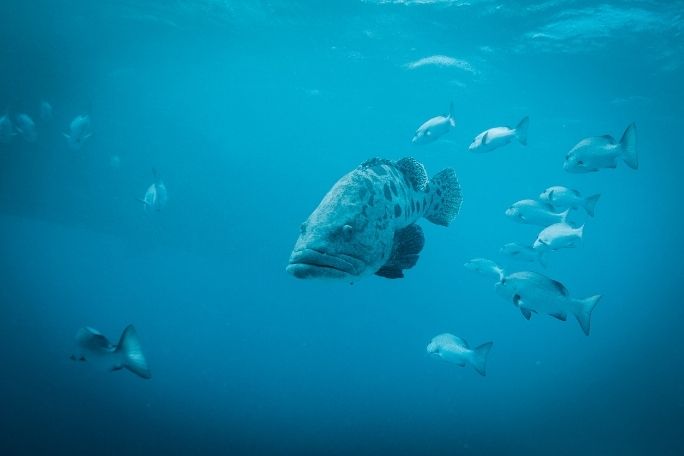Lesson summary
This lesson incorporates clips from Blue The Film as learning inspiration. In this lesson students learn about sustainable fishing by exploring the reasons we should wait for fish to grow to certain sizes before we catch them. They learn about how science is involved in helping people to fish responsibly. Students take part in an activity that allows them to experience sorting and sizing fish, to work out if it is a good catch or a great catch. They then decide whether to keep the catch or return it to the sea. Finally the students discuss how they can help the fish of the oceans when they go next go fishing.
Learning intentions:
Students will...
- learn about why and how we should fish in a way that doesn’t harm marine ecosystems.
Success criteria:
Students can...
- identify what a fish is and where it lives
- understand the difference between a juvenile and a mature fish
- conduct measurements using a ruler
- communicate ideas with others
- suggest ways we can all help fish.
Lesson guides and printables
Lesson details
Curriculum mapping
Australian curriculum content descriptions:
Foundation Mathematics:
- Use direct and indirect comparisons to decide which is longer, heavier or holds more, and explain reasoning in everyday language (ACMMG006).
Year 1 Mathematics:
- Measure and compare the lengths and capacities of pairs of objects using uniform informal units (ACMMG019).
Year 2 Mathematics:
- Compare and order several shapes and objects based on length, area, volume and capacity using appropriate uniform informal units (ACMMG037).
Syllabus outcomes: MAe‑1WM, MAe‑3WM, MAe-9MG, MAe-11MG, MAe-12MG, MA1‑1WM, MA1‑3WM, MA1‑2WM, MA1-9MG, MA1-10MG, MA1-11MG
General capabilities: Critical and Creative Thinking
Cross-curriculum priority: Sustainability OI.7
Relevant parts of Foundation Mathematics achievement standards: Students compare objects using mass, length and capacity.
Relevant parts of Year 1 Mathematics achievement standards: Students order objects based on lengths and capacities using informal units.
Relevant parts of Year 2 Mathematics achievement standards: Students order shapes and objects using informal units.
Unit of work: Blue The Film: Inquiry – Foundation, Blue The Film: Inquiry – Years 1 & 2.
Time required: 60 mins.
Level of teacher scaffolding: High – oversee activities and lead students in discussions.
Resources required
- Student Worksheet – one copy per per group
- Fishing Worksheet
- Paper Fish – these can be printed at any size so long as you have several sizes of each fish
- Rulers for measuring
- A bucket
- Pens/pencils
- Art materials
Skills
This lesson is designed to build students’ competencies in the following skills:
- Communication
- Empathy
- Global citizenship
Additional info
Blue is a feature documentary film charting the drastic decline in the health of our oceans. With more than half of all marine life lost and the expansion of the industrialization of the seas, the film sets out the challenges we are facing and the opportunities for positive change. Blue changes the way we think about our liquid world and inspires the audience to action. Find out how to screen or download the film here. Along with the film is an ambitious global campaign to create advocacy and behaviour change through the #oceanguardian movement. To become an ocean guardian, see the website.


Welcome back!
Don't have an account yet?
Log in with:
By signing up to Cool.org you consent and agree to Cool's privacy policy to
store, manage and process your personal information. To read more, please see
our privacy policy here(Opens in new tab).
Create your free Cool.org account.
Many of our resources are free, with an option to upgrade to Cool+ for premium content.
Already have an account?
Sign up with:
By signing up to Cool.org you consent and agree to Cool's privacy policy to
store, manage and process your personal information. To read more, please see
our privacy policy here(Opens in new tab).